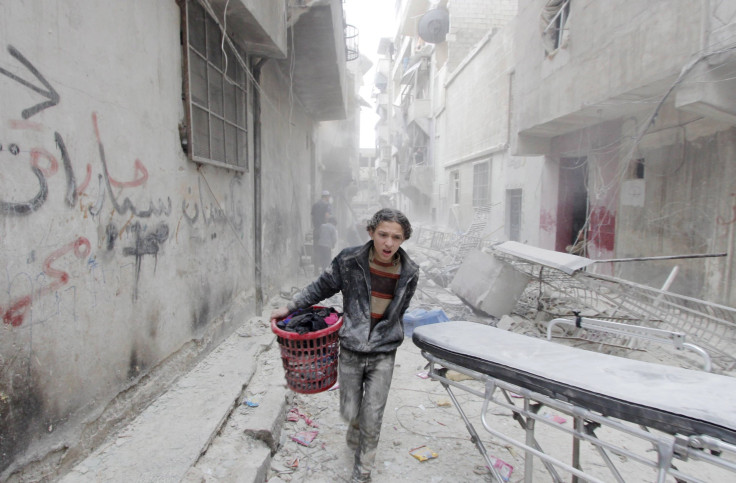Syria Conflict: US, Russia Announce Ceasefire, New Military Partnership To Tackle ISIS

UPDATE: 7:41 a.m. EDT — Syria’s mainstream opposition, the High Negotiations Committee (HNC), said Saturday that the proposed agreement between the U.S. and Russia could, in the long run, end in the suffering of civilians.
HNC spokeswoman Basma Kodmani told the Associated Press that Russia should use its influence to get Syrian President Bashar Assad’s government to comply with the provisions of the agreement. She added that mechanisms are required to make sure the deal is enforced, including the “cessation of hostilities and the grounding [of] regime air forces.”
However rebels from the Free Syrian Army are reportedly wary of the new deal, citing that there was little chance of Moscow and Damascus abiding by the deal’s provisions.
Military spokesman for the rebel group, Nour al-Din al Zinki Brigades, added that the deal would give the regime the chance to regroup and add more Iranian-backed militias to the battles in Aleppo.
Turkey, on the other hand, has welcomed the new agreement. The country’s foreign ministry reportedly said that is it important that the fighting is stopped and aid reaches those in need “from the first day” of the ceasefire.
Turkish Foreign Minister Mevlut Cavusoglu had spoken to his Russian counterpart Sergei Lavrov Friday ahead of the announcement of the deal. “They expressed mutual understanding of the importance of all parties concerned complying with the cessation of hostilities and the resumption of the inter-Syrian negotiation process,” the Russian foreign ministry said.
Original story:
Russia and the U.S. announced an agreement on the Syrian war early Saturday that calls for a nationwide ceasefire starting sundown Monday. The announcement followed a day of discussions between the two countries in Geneva which saw a new military partnership that will target the Islamic state group (ISIS) and al-Qaida.
U. S Secretary of State John Kerry said in a press conference that the plan could be a potential “turning point” in the five-year war that resulted in the deaths of nearly 500,000 people.
“Today the United States and Russia are announcing a plan which we hope will reduce violence, ease suffering and resume movement toward a negotiated peace and a political transition in Syria,” Kerry said just after midnight. “We are announcing an arrangement that we think has the capability of sticking, but it is dependent on people's choices.”
He added that in order for the plan to be successful it is crucial that Syrian President Bashar Assad’s forces and the rebel groups “meet their obligations.”
Russian Foreign Minister Sergey Lavrov added that the new agreement also helps in the delivery of humanitarian aid which has been stalled for weeks. He said that the Syrian regime has been informed of the plan and is prepared to comply.
Kerry said that the opposition is also prepared to comply with the plan as long as Assad’s government “shows it is serious.” A week after the implementation of the ceasefire, the U.S. and Russia will establish a “joint implementation center” to tackle the ISIS and the al Qaida-linked Nusra fighters.
“We have agreed on the areas where such coordinated strikes would be taking place, and in those areas, on neutral agreement shared by the Syrian government as well, only the Russian and U.S. air force will be functional,” Lavrov said, adding that “the Syrian air force will be functional in other areas, outside those that we have singled out for Russian-American military co-operation.”
Kerry added that this was the “bedrock of the agreement” and called the government’s air force as the “main driver of civilian causalities.”
This breakthrough comes after months of negotiations to reach a ceasefire agreement between the regime and the opposition so humanitarian aid could be delivered to the thousands of Syrians in distress. Clashes between the two sides have escalated in eastern Aleppo recently.
The United Nations envoy to Syria Staffan de Mistura said Friday that the severe food and water shortages in Aleppo have made the situation even worse. He warned that fuel supplies could run out in a matter of days.
“Eastern Aleppo is at the apex of horror, where anyone of us if we were there would find life barely possible, let alone tolerable,” U.N. Humanitarian Chief Stephen O'Brien told BBC.
© Copyright IBTimes 2024. All rights reserved.






















